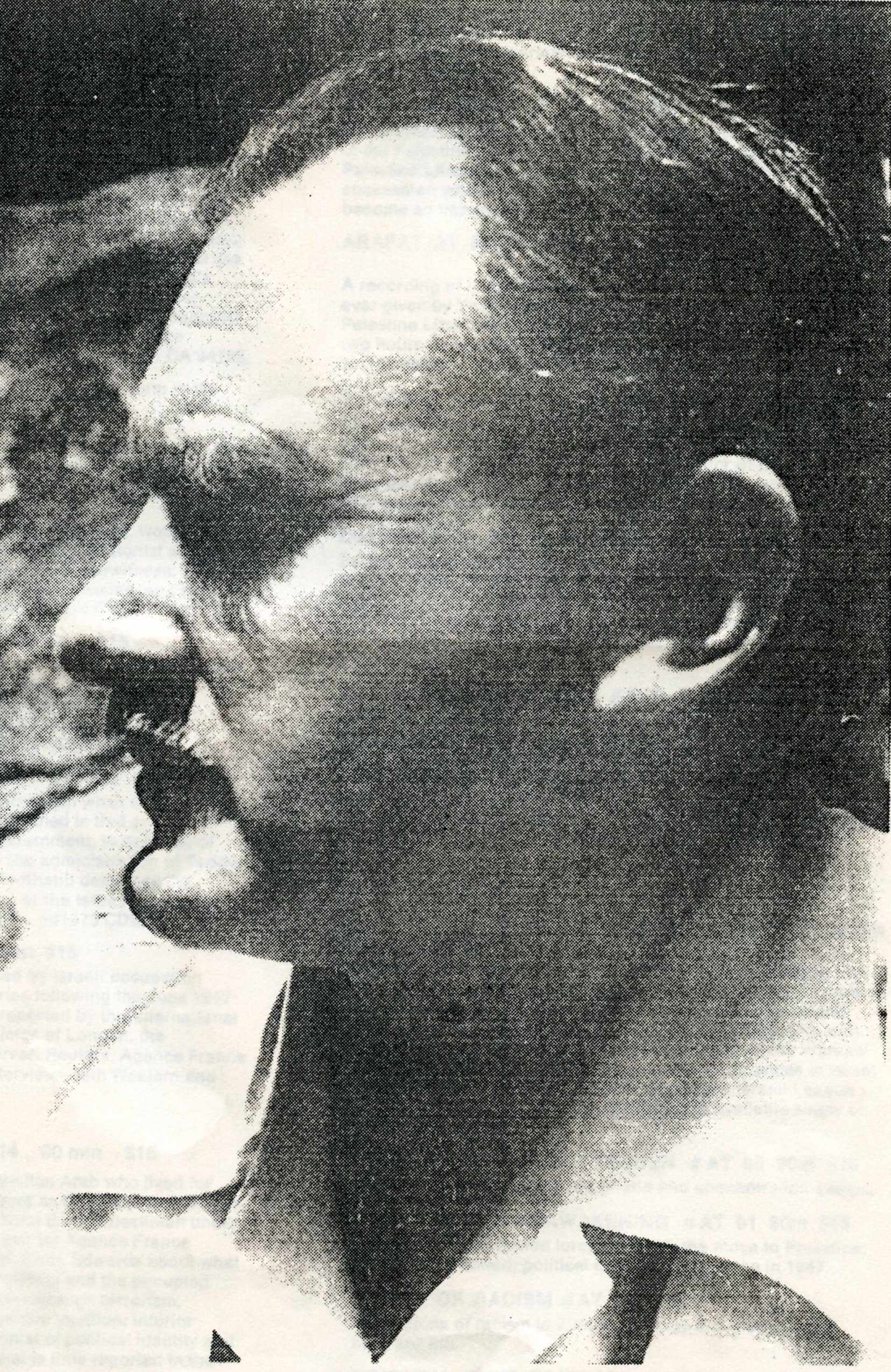Independent Collections
These collections were produced by independent journalists. Many of these recordings make up the bulk of the original collection of the Freedom Archives.
Subcollections
-
Colin Edwards Collection
Materials representing the life-work and journalism of a Welsh radio correspondent and journalist who worked for Pacifica stations, the BBC and many other broadcasters. -
Colin Edwards Free Speech Movement
This collection is produced by journalist Colin Edwards and represent a comprehensive account of the Free Speech Movement and its effect on the political climate of UC Berkeley. -
Programs produced by Kiilu Nyasha
Kiilu Nyasha is a revolutionary journalist and former member of the Black Panther Party. Kiilu still hosts Freedom Is A Constant Struggle, which now appears as a TV program. -
“Nothing is More Precious Than…” a news magazine including music and poetry
KPFA weekly news program running from 1973-1976 featuring in-depth coverage of liberation struggles around the world. -
“The Real Dragon” a news magazine including music and poetry
Real Dragon was a radio program broadcast on KPFA from 1971-1973. This news show focused on issues of national liberation, political prisoners, Vietnam and other major national and international topics.
Documents
Date: 1/1/1981Call Number: CE 031Format: CassetteProducers: Colin EdwardsProgram: Northern Ireland: Colin Edwards Audition TapeCollection: Colin Edwards Collection
Interviews on situation in Northern Ireland, two with former military, one from Northern Ireland Veterans Against the War, then a retired British General, now professor, who is expert in urban guerrilla warfare, then a former BBC journalist who covered war in Belfast.
Call Number: CE 056Format: 1/4 7 1/2 ipsProducers: Colin EdwardsCollection: Colin Edwards Collection
Speaking at a literary conference about the need for social action in the streets. A revolutionary message to Black people - a populist folk cultural message protesting segregation. In addition to cruelty, brutality and its murderous nature, segregation can also be depicted as ridiculous and laughable.
Call Number: CE 057Format: 1/4 7 1/2 ipsProducers: Colin EdwardsCollection: Colin Edwards Collection
Speaking at a literary conference about the need for social action in the streets. A revolutionary message to Black people - a populist folk cultural message protesting segregation. In addition to cruelty, brutality and its murderous nature, segregation can also be depicted as ridiculous and laughable.
Date: 9/28/1965Call Number: CE 042Format: 1/4 7 1/2 ipsProducers: Colin EdwardsCollection: Colin Edwards Collection
Discusses conditions in Mississippi, role of the police & how the federal government won't protect peoples' civil rights. Remembers Chaney, Goodman & Schwerner murders, admires the Deacons for Defense, Malcolm X (who was to have come to Mississippi the day after his assassination). Comments on the Muslim movement, how she doesn't agree with separation, suggests that Martin Luther King and the SCLC were too middle class, is hopeful about youth and the Mississippi Freedom Democratic Party.
Date: 9/28/1965Call Number: CE 043Format: 1/4 7 1/2 ipsProducers: Colin EdwardsCollection: Colin Edwards Collection
Discusses her life in Mississippi, trying to organize, voting rights. Also describes her attempt to register to vote, arrest & jail - particularly how cops forced other prisoners to beat her under threat of death (they were first made to drink corn whiskey) and despite federal hearings "those same men are still wearing their guns."
Date: 4/1/1968Call Number: CE 059Format: 1/4 7 1/2 ipsProducers: Colin EdwardsCollection: Colin Edwards Collection
Speaks about America's racial crisis, racism and discrimination and why people have a right to self-defense. (only 3 minutes recorded on the street)
Date: 3/10/1965Call Number: CE 065Format: 1/4 7 1/2 ipsProducers: Colin EdwardsCollection: Colin Edwards Collection
St Patrick's Day rally at the Federal Building to "Stop the Bloodbath" in Selma. This period saw numerous rallies in solidarity with marches in Alabama as well as demonstrations sending people to participate.
Date: 4/5/1968Call Number: CE 066Format: 1/4 7 1/2 ipsProducers: Colin EdwardsCollection: Colin Edwards Collection
1 - Marlon Brando speaks about America's racial crisis, racism and discrimination and why people have a right to self-defense.
2 - Colin commentary on the assassination of Martin Luther King Jr utilizing portions of King's visit to Santa Rita Jail in January 14, 1968 where he supported Joan Baez and draft resisters.
3 - Bay Area Black communities respond to the assassination of Martin Luther King. Colin describes demonstrators in Oakland, San Francisco & Berkeley in the streets and attacks on businesses - also white supremacists driving through the Black community in celebration of the murder. Culminates in a SF City Hall demonstration of over 5000 people including speech of Carlton Goodlett of the Sun Reporter, a recently returned Black Vietnam vet and a high school student.
Call Number: CE 079Format: 1/4 7 1/2 ipsProducers: Colin EdwardsCollection: Colin Edwards Collection
Wide-ranging interview with Marion Berry, representing SNCC.
Call Number: CE 080Format: 1/4 7 1/2 ipsProducers: Colin EdwardsCollection: Colin Edwards Collection
Wide-ranging interview with Marion Berry, representing SNCC.






